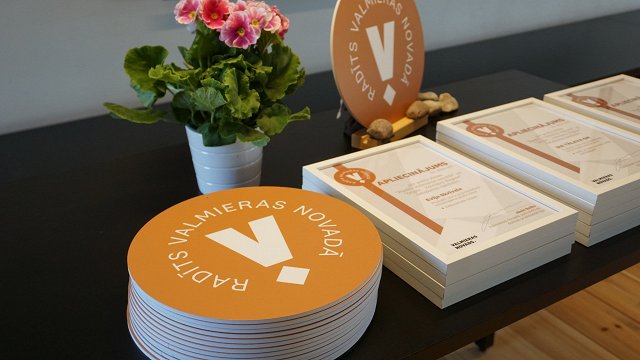Latvian residents now have the opportunity not only to shop and order delivery, to look at virtual fairs, concerts.
In 2019, only 11% of small and medium-sized companies in Latvia sold their goods and services online. In Europe, this is an average of 17.5%. Latvia's e-commerce turnover accounted for only 5% of the turnover of small and medium-sized enterprises last year, but on average in Europe this rate was more than twice as high.
Signe Bāliņa, chair of Latvian Information and Communications Technology association (LIKTA) forecasts that this year's statistics will show an increase in e-commerce development in Latvia, as the time of the pandemic has given a major boost and a push for e-commerce development.
“In the spring, there were not so many restaurants, cafes that offered take-out. To order dishes on the Internet using an app or using one of the common platforms. Now it's normal. I think many thought [about it] and there were many of these digital things that we knew about, but didn't use and think – maybe later. But this time came and the companies realized that it had to be done now,” said Bāliņa.
This is how the cafe Stockpot started to use the Internet more. Its owner, Linda Džonsone, said that the home page, which has the option to order food at home, was created four years ago, but it did not have demand.
“That's why we stopped using it and then we started it again in the spring, and we had a turnover of around €200 a day on the home page. It has now developed more and turnover on the home page is around €600 a day,” Dzonsone said.
Ordering food on the Internet has also been particularly topical in the last two weeks, since the state of emergency began, and has prohibited sitting in cafes and restaurants.
Elīna Berklava, head of the boutique M50, said that during the first emergency, the Internet store was the main source of revenue for a few months.
She said that online success is not just the existence of an e-shop. One must work on advertising on social media, visual design of the home page, product descriptions.
The chair of LIKTA urges small and medium-sized enterprises, who plan to develop their activities in the e-commerce field, to identify the possibilities of support, as not everything needs to be done on their own. For example, many banks offer small and medium-sized business help with their e-commerce platforms, where there are already payment options. A platform is also offered by the Internet store 220.lv, which has grown from a classic online store to a virtual mall.
The company's marketing and communications chief, Līga Bubko, said: “'Marketplace' is an e-shop with the appropriate infrastructure in which any retailer can offer their goods. Meanwhile, our job is to provide IT solutions, logistics, customer service and marketing. Today 'marketplace' brings together more than 1300 sellers from all three Baltic States.”
Bubko explained that the analogue of such a virtual mall is known to everyone, like 'Amazon' and 'ebay'.



























